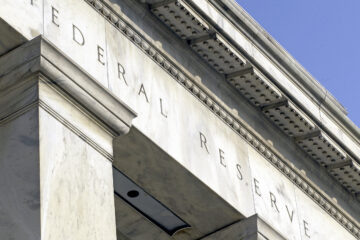USA
Financial markets have reacted positively to the talks between China and the US held in Beijing, that next week will move to Washington, with the S&P500 scoring a +2.50% over the week. The Dow Jones and the Nasdaq both increased by 3.09% and 2.05%, respectively. The deadline for the imposing of new tariffs is set on 1 March.
On Thursday, the data for December US retail sales came up below expectation (-1.2% YoY) with the steepest decline since December 2009. The main indices decreased slightly on the day (S&P 500 -0.27% on that day). On Friday, Donald Trump officially declared the state of national emergency to unlock $8 bn dollars of funds that will be used in building the wall between the USA and Mexico.
Another key event of the week is the statement by Lael Brainard, a Fed governor, saying that the process of shrinking the balance sheet should finish by December 2019. This helped the equity market while causing the dollar to slightly fall on the day. The EURUSD now stands at 1.1231 (-0.35% weekly), while the Dollar Index scored a +0.3% In this context, the volatility index (VIX) remained low at a 14.91 level, well below the highs of last year.
UK
Brexit’s impact on the UK’s economy can be seen, as growth slows to the weakest in a decade. At 1.4%, Brexit was not the only factor to be blamed. Europe’s growth as a whole, is slowing. But still, UK’s growth only outpaced Italy and no other country. Inflation, however, has fell to 1.8%, from depressed energy prices, a salve to many worker woes whose living standards were squeezed.
With chaos in Westminster, a no-deal exit is becoming even more possible. Uncertainty has hit business hard, as the entire year saw declining investment and the lowest annual growth rate since 2009. The prime minister has to content with both Brussels and internal disputes. Continued uncertainty is almost certain.
The Bank of England has taken a wait-and-see position on rates in the medium term, waiting for clear signs of growth headwinds. This comes as the economy has slowed more than forecasted, throwing doubts into inflationary pressures.
EU
The Euro has fell when paired with the dollar, after an official at the ECB hinted at yet another round of long-term loans to bank as the slowdown is worse than expected. At $1.1231 at close on Friday, prices are near a 2-year low since June 2017. This was believed to be targeted at the broad Euro-zone slowdown as Italy slips into recession and Germany barely avoided it by the narrowest of margins. This slowdown of the EU economy has sent the Bund yield to 10 bps.
Italian bond markets have seen increased interest since the start of the year, markedly different from last year depressed outlook. A negative picture lies underneath however; its popularity lies in the higher and volatile bond yields. This is further boosted as the Euro-zone waning economy meant that rate hikes are pushed back even further, to mid-2020.
Indeed, industrial production dipped by 0.9% in December 2018 after dropping by 1.7% in the previous months. This serves only to highlight the regions woes to sluggish global demand and heightened political uncertainty.
REST OF THE WORLD
On Friday, China released data for inflation in January, which slew to 1.7% YoY, while the January export figure showed a +9.1% YoY, sending the Shanghai Composite Index a +2.45% and the Hang Seng at -0.16%, led also by US-China talks in Beijing. The off-shore renmimbi depreciated against the usd by 0.22% to 6.77. Generally speaking, the rally of the emerging markets spurred by the dovish tone of the Fed paused last week, with the MSCI Emerging Markets Index showing a -0.12% performance over the week.
Furthermore, this weekend Elections will take place in Nigeria, the biggest African economy. The incoming president, Mr. Buhari, is running for re-election with a programme based on state-led growth and state intervention. On the contrary, his opponent, Mr. Atiku pushes for privatization of public refineries and supports market-friendly policies. The main aim of both candidates is to diversify an economy heavily dependent on oil. The race is expected to be tight.
On the corporate side, the Brazilian miner Vale, whose dam rupture last month caused the death of at least 160 people in the Latin American country, knew already last year that the dam had heightened the risk of rupturing. That’s what Reuters published on Monday, which has brought the stock performance to -17.03% since the day of the tragedy.



0 Comments